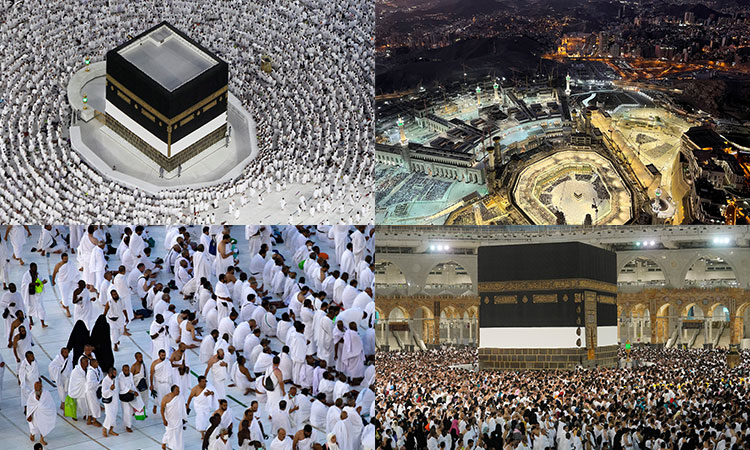On the first day of the largest Hajj journey since the COVID-19 pandemic started, hundreds of thousands of mostly masked pilgrims circled the holiest site in Islam in Saudi Arabia on Wednesday, July 6.
This year’s Hajj in the Holy City of Makkah is permitted for one million fully immunised Muslims, including 850,000 foreigners. This is a significant increase after two years of significantly reduced numbers due to initiatives to stem the spread of infection.
Pilgrims made the “tawaf,” or circumambulation of the Holy Kaaba, in the Grand Mosque in Makkah.
The requirement for masks at the site, as announced by the authorities last month, has thus far mostly gone unheeded. As the mercury soared to 42 C, several pilgrims grabbed umbrellas to shield themselves from the intense sun.
The Saudi health ministry has prepared 23 hospitals and 147 health centres in Makkah and Madinah, the second holiest city in Islam, to accommodate pilgrims, state media reported this week.
That includes allocating more than 1,000 beds for patients requiring intensive care and more than 200 specifically for heatstroke patients, while dispatching more than 25,000 health workers to respond to cases as they arise.
Read Also: Congo: Woman Forced To Eat Human Flesh, Raped Repeatedly By Kidnappers
The Hajj poses a considerable security challenge and has seen several disasters over the years, including a 2015 stampede that killed up to 2,300 people. No incidents had been reported as of Wednesday afternoon.
The Hajj this year is bigger than the scaled-back occasions in 2020 and 2021, but it is still less than during regular times.
A significant aspect of Islam requires all physically capable Muslims to participate in the yearly event at least once in their lifetimes. In 2019, almost 2.5 million Muslims from around the world took part.
However, the coronavirus outbreak that followed compelled a drastic retrenchment. Only 60,000 fully immunised kingdom citizens and residents participated in 2021, an increase from a mere few hundred in the previous year.
The pilgrimage consists of a sequence of religious rites that are performed over the course of five days in the western Saudi Arabian region that is home to Makkah, the holiest city in Islam.
On Thursday, the pilgrims will move to Mina, around five kilometres away from the Grand Mosque, ahead of the main rite at Mount Arafat, where it is believed the Prophet Mohammad (PBUH) delivered his final sermon.
Four hospitals and 26 health centres are ready to treat pilgrims in Mina, state media said, while the visitors will stay in air-conditioned white tents.
This year’s Hajj is restricted to vaccinated Muslims under the age of 65 chosen from millions of applicants through an online lottery system. Those coming from outside Saudi Arabia were required to submit a negative COVID-19 PCR result from a test taken within 72 hours of travel.
Since the start of the pandemic, Saudi Arabia has registered more than 795,000 coronavirus cases, more than 9,000 of them fatal.

